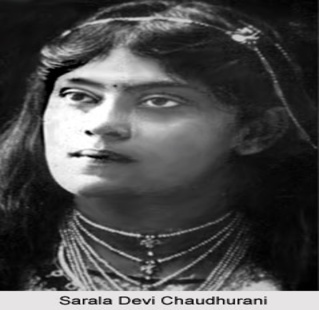Malati Nabakrushna Choudhary, born on November 1,
1906, in the small village of Dasapalla in Odisha, stands out as a remarkable
figure in India’s struggle for independence and the subsequent formation of its
political landscape. Known for her commitment to women’s rights and social
reform, Choudhary played a pivotal role in advocating for the empowerment of
women during a time when their voices were often marginalized.
Growing up in a progressive family, Malati was exposed to the ideals of education and social
reform from an early age. Her father, a forward-thinking individual,
prioritized her education, which was relatively uncommon for women at that
time. She completed her schooling and went on to pursue higher education at the
Ravenshaw College in Cuttack. This academic foundation ignited her passion for
social issues and laid the groundwork for her future activism.
Malati’s entry into the freedom movement was marked
by her association with the Indian National Congress. Influenced by the rising
tide of nationalism, she became an active participant in protests and campaigns
against British colonial rule. Her early involvement in the movement was
characterized by her ability to mobilize women, encouraging them to participate
actively in the struggle for independence.
In 1930, during the Civil Disobedience Movement,
she faced imprisonment for her participation in the salt satyagraha, a
testament to her courage and commitment to the cause. Her experiences during
this time shaped her understanding of the socio-political landscape of India
and reinforced her determination to fight for justice and equality.
One of Malati’s
most significant contributions was her unwavering commitment to women's rights.
Recognizing the need for women to be included in the political discourse, she
worked tirelessly to uplift their status in society. She founded various organizations
aimed at educating women and providing them with opportunities for
self-development. Her efforts were crucial in encouraging women to take on
leadership roles and participate in governance.
In 1947, after India gained independence, Malati
Nabakrushna Choudhary continued her advocacy by becoming one of the first women
members of the Odisha Legislative Assembly. She used her position to address
issues related to women's rights, education, and social welfare. Her
initiatives focused on improving healthcare, literacy rates, and economic
opportunities for women, thereby laying the groundwork for future generations.
Malati’s contributions extended beyond politics;
she was also a prominent social reformer. She worked towards eradicating
superstitions and promoting scientific temper among the populace. Her
relentless efforts in the field of education led to the establishment of
numerous schools and colleges, making quality education accessible to women and
marginalized communities.
Malati
Nabakrushna Choudhary’s life and work embody the spirit of resilience and
empowerment. Her journey reflects the transformative power of education and
activism in shaping society. As we celebrate her contributions, it is essential
to acknowledge the ongoing struggle for gender equality and women's rights,
drawing inspiration from her legacy. Her story is a reminder that the fight for
justice is continuous, and the strength of one individual can indeed create
ripples of change that benefit generations to come.














